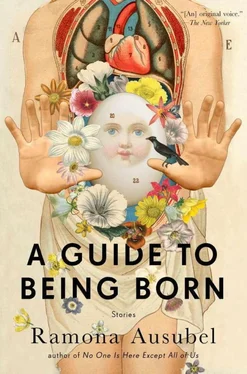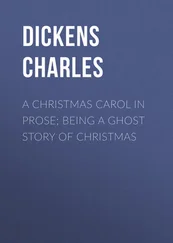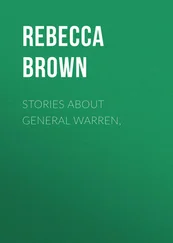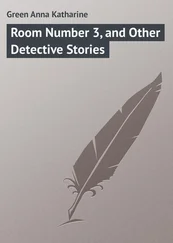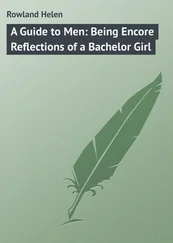By the time the doctor made the bittersweet announcement that this healthy baby was a girl, and all the women in the room gave up hope that their husband and father’s sharp features and smarts would live again, Hazel was lost in her menagerie of beasts. She looked right at the bald skin and didn’t see it. Didn’t believe that the puffy-limbed crier, all pink with bright blue eyes, could be the thing she had been carrying around. Hazel did not reach out when the doctor handed it to her but kept her arms flat by her sides. The baby’s body seemed impossible to her, as if she had given birth to a chair or a bicycle.
“It’s a nice little girl,” the doctor said.
“Whose is it?” Hazel replied. They all laughed warm and low as if she were joking. Her mother took the child from the doctor and rocked her, wrapped her in a pink blanket with big ducks on it. In the growing darkness, Hazel thought a duck’s bill might be attached to her child. She fell asleep thinking about it quack quacking around the house with its tail bobbing.
While Hazel was sleeping, Johnny stopped by with three gas-station cloth roses, pink with plastic dew.
“I’m just a friend of Hazel’s,” he said, leaving the flowers with one of her sisters, who was reading a magazine in the bright hallway.
“You shouldn’t bother her,” the sister said. “But I’ll let her know you stopped by.”
“Tell her if she needs anything from the store… snacks or whatever. Candy. Smokes. Not that, but you know, I think we sell diapers.” The sister brought her eyebrows together and rattled the roses. Johnny’s feet were heavy on the floor all the way back down the long corridor. He might have become a father that day, or he might not have. He craved the floating feeling of a moment when everything changes. He wanted to call his mother, tell her the figures: pounds and ounces, inches, exact time of birth, first, middle and last names. None of these were known to him, and his mother would not have understood why she was supposed to care.
• • •
FOUR IN THE MORNING and Hazel was awake. It was raining outside and no one was in the room. Water sheeted and Hazel felt around under the blanket to inspect her body, which was still swollen—a tight, empty globe. What had been growing there was done and out and growing someplace else now. It didn’t need her blood or her air.
The room was a dark kind of yellow with a lot of moon and a little hall-light coming under the door. The blinds on the windows chopped the glow into slices and divided Hazel’s covered body into slats. She looked around the room at the machines, which breathed back at her. A small red light went on and off. Hoses hung and the shadows of hoses hung lower. A mop and mop bucket. Hazel felt suddenly stuck in a laboratory, caught and studied. She thought she might be left there forever, that her mother had taken her baby and introduced it to the human babies. It would assimilate. It would be accepted into their tribe and given a flowered diaper cover and fed smashed peas. It would never learn to hunt or peck or make its mating call. Hazel sat up and then stood up but got dizzy and sat again. She hit the pillow with her fist.
The baby, who had not been stolen away, but had instead been sleeping in her crib in the corner, began to cry. Hazel got up, slower this time, her pounded and squeezed body creaking as she slid her socks over the linoleum like a skier. There was almost no light in the crib, nothing to brighten the skin of the new life lying there. It cried, the new life. Hazel put her index finger into the crib and poked softly until she felt the warm mound. She touched the ears, the spirals of them. She touched the back of the neck and the front of the neck. She tried to find the mouth, which was still crying. She thought she felt whiskers and a wet nose. She felt soft fur just starting on the top of the head. Suddenly she knew the answer. It was a seal, fat and legless. She put her hands over the round eyes, which she knew were black but could not see. The seal barked into her palm and its breath was warm.
This was one animal Hazel hadn’t planned for. She thought of the twirling underwater torpedoes in the zoo. It was gill-less, an air breather the same way she was, but it must also like to be wet. She went to the window and opened it, put her hands out in a cup and waited while the air blew cold across her skin. Drops fell but dripped through her fingers and she couldn’t collect much. She returned to the flopping baby and rubbed her water-hands onto its face and then its back, which someone had tried to cover with a nightgown, a thing that seemed ridiculous to Hazel.
She remembered the mop bucket and slid her way to it. It was hard to bend down, but she was able to drag it to the crib using the mop as a handle. She pulled the mop up and water streamed down, splashing her feet and the floor. She ran the gray tendrils over the baby, smelling the soap and dirt in the water. It started to cry again. She made shushing sounds in her mouth and tried to hum “Go Tell It on the Mountain.” The mop went back and forth, the baby cried, Hazel hummed. She took a deep breath and leaned down to grab the bucket. Sharp shots crossed back and forth in her stomach. She winced and squeezed her eyes shut but kept bending. She caught hold of the handle and lifted. It wasn’t as heavy as she had expected, and coming up was easier than going down.
Hazel started to sing the words of the song as she raised the mop bucket over the crib and poured. The water was cold and gray in the dark room. It ran out in ropes, twisting together and splashing into the crib, where the baby cried and threw her small weight back and forth. The blankets soaked through. The thin mattress soaked through. The sleeves of Hazel’s nightgown were wet and dripping. The baby’s cough was so small it didn’t even make it to the walls to bounce.
“Is that enough?” she asked.
No sound came after that, except a dripping plip plip plip on the floor. The baby was quiet and Hazel was quiet. The rain continued to be rain, the bed continued to be flat and rumpled. Nurses in other rooms still tried to move soundlessly while they adjusted feeding tubes and emptied bedpans. Hazel’s mother was still her mother. Hazel was still not her father and neither was her baby. The two of them would be fatherless together. They would be young together. “Now that I am a mother,” Hazel said to the baby, “I get to set the rules. And the rules are: swimming, sunning, playing. Everything else, we ignore.” She put the bucket down, empty now, and leaned into the crib to pick up the baby, blanket-wrapped and dripping.
The bundle coughed one beautiful polished river rock of a cough. Hazel put her ear right down against the lips and heard air, in and out. The eyes looked up at her, surprised and afraid. Hazel breathed her air into her baby’s mouth and then waited until the baby breathed out so she could inhale that sweetness.
Hazel walked with it around the room, careful and slow. The body was cool against her. Her clothes stuck to her breasts. She sat down at the edge of her bed. She put the baby down and removed her hospital gown, and then decided to remove the baby’s clothes too so their skin could touch. She held the baby to her chest, guided a nipple into the little mouth. Hazel had become aware of the baby’s arms and legs, but still saw the seal face, the slick black eyes. She could feel the whiskers brushing against her while it sucked, toothless and quiet.
BEN FELT EMPTY, in the literal sense. He poked at his belly button, at the organs beneath, which were producing no new miracles. As he understood it, his liver was filtering; his gall bladder was storing bile the liver produced during the filtration process; his intestine was connecting the in and the out; and in between, things got broken down with acids. None of that was new. He was the very same machine he had always been.
Читать дальше
